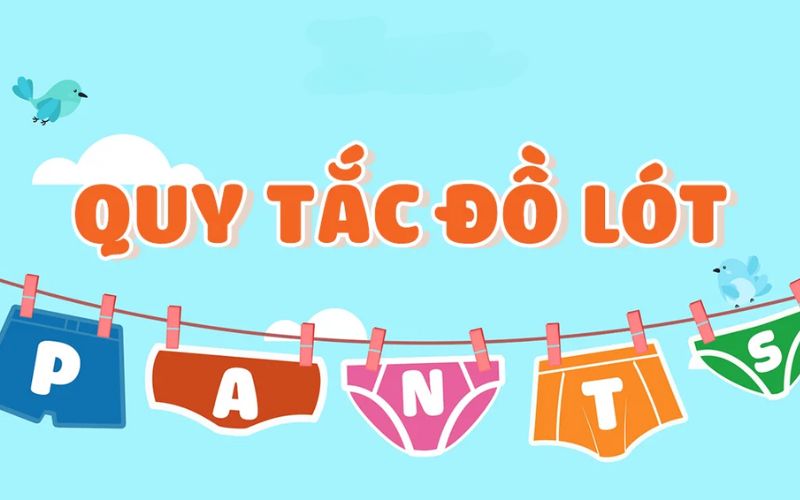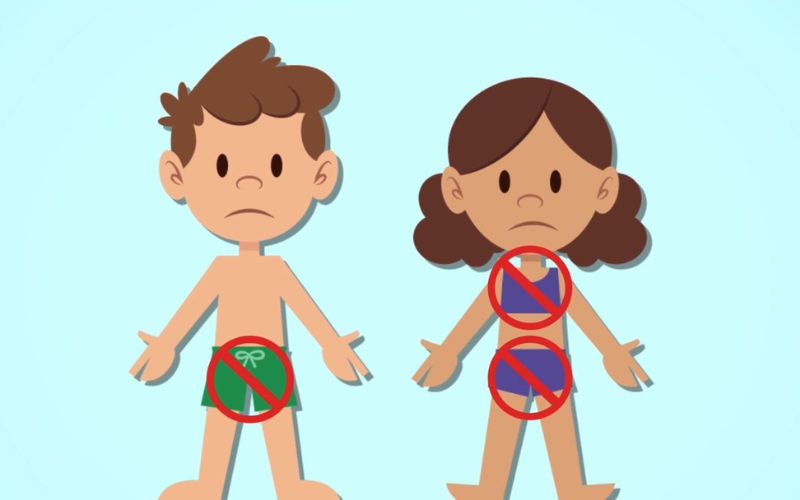The PANTS rule is an essential tool for parents to protect their children from sexual abuse. This set of five messages, created by the National Society for the Prevention of Cruelty to Children (NSPCC) in the UK, empowers children to take ownership of their bodies and stay safe.
1 What is the PANTS Rule?
The PANTS rule, or “Talking PANTS”, is a collection of five distinct messages designed to educate children about privacy, body autonomy, consent, and speaking up. It aims to reduce the risk of sexual abuse and empower children to protect themselves.
 The PANTS Rule
The PANTS Rule
2 What are the Five Messages of the PANTS Rule?
The five messages of the PANTS rule are represented by the letters in the word “PANTS”:
- P (Private): Emphasize the concept of privacy to children. Teach them that their private parts are private and that no one should touch or see them without their consent.
- A (Always remember your body belongs to you): Remind children that their body belongs to them and that they have the right to say no to any unwanted touch or exposure.
- N (No means no): Teach children that “No” is a complete sentence. They should not feel pressured to comply with an adult’s request if they are uncomfortable.
- T (Talk about secrets that upset you): Encourage children to share their worries and concerns, especially secrets that make them feel uncomfortable or scared. Assure them that it’s okay to talk about these secrets with trusted adults.
- S (Speak up, someone can help): Let children know that speaking up can help keep them safe. Encourage them to talk to trusted adults about anything that makes them feel unsafe or uncomfortable.
 The Five Messages of the PANTS Rule
The Five Messages of the PANTS Rule
P (Privates are Private)
Parents should explain to their children that only they and trusted caregivers (like parents) should be able to see or touch their private parts. If anyone else tries to do so, teach them to say no and seek help immediately. For medical examinations, explain the situation and get their consent beforehand. Additionally, encourage children aged three and above to start taking ownership of their personal hygiene.
A (Always remember your body belongs to you)
Remind your children that their body is their own and that no one has the right to make them feel uncomfortable or ashamed. If someone tries to touch or expose their private parts, instruct them to say “No” loudly, run away, and seek help from others.
N (No means No)
While it’s important to teach children to respect their elders, they should also understand that they have the right to say no to adults if they feel uncomfortable or sense ill intentions. Emphasize that their choice and consent matter.
 Educating Children about Consent and Boundaries
Educating Children about Consent and Boundaries
T (Talk about secrets that upset you)
Help children understand the difference between good and bad secrets. Teach them that it’s important to share bad secrets, which make them feel sad or scared, with trusted adults. Assure them that you will support and protect them.
S (Speak up, someone can help)
Encourage open communication by letting your children know that they can talk to you about anything that worries or scares them. Ask them about their day and create a safe space for them to share their feelings.
By following the PANTS rule, parents can effectively educate their children about sexual health, consent, and self-protection. It empowers children to recognize and avoid potential dangers and seek help when needed.
Source: Dân trí Newspaper





































